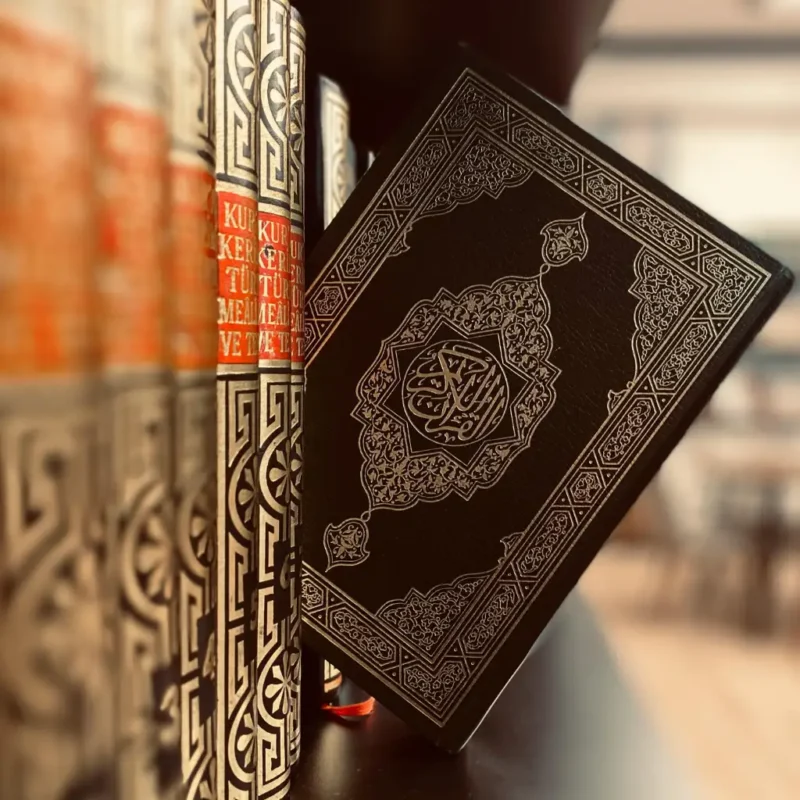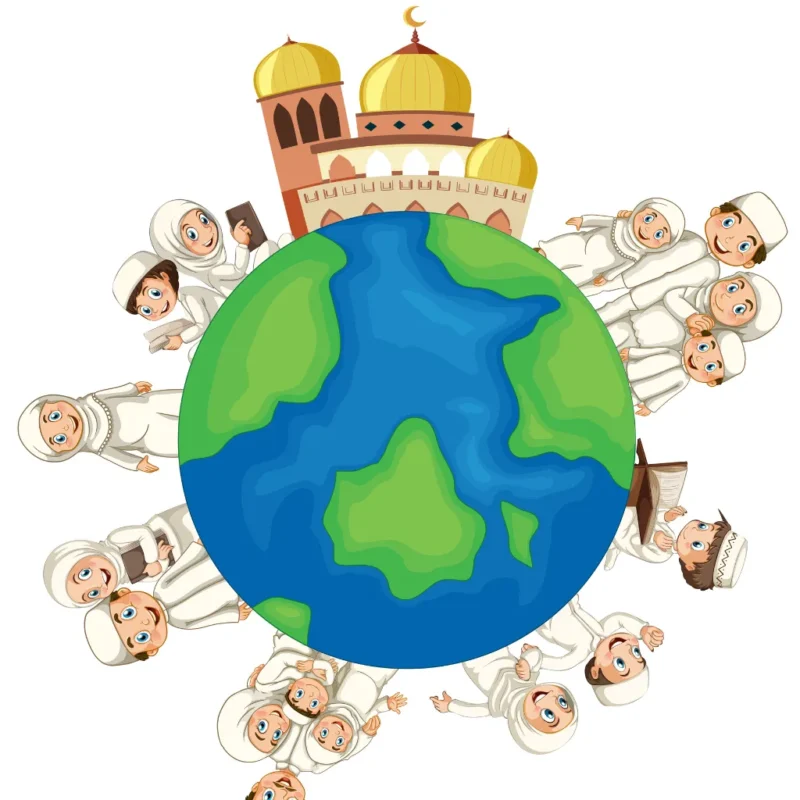Introduction
Greetings are a universal form of communication, but in Islam, they carry deeper spiritual meaning. Learning how to greet in Islam is not just about being polite — it’s about following a beautiful Sunnah that encourages peace, respect, and connection within the Muslim community. In this guide, you’ll uncover the etiquettes, meanings, and practical applications of greeting in Islamic tradition. Whether you’re a new Muslim, a non-Muslim curious about Islam, or simply brushing up on your knowledge, this article offers a comprehensive, friendly, and clear explanation.
The Spiritual Significance of Greeting in Islam
In Islam, greetings aren’t just casual words — they are acts of faith. The phrase “Assalamu Alaikum”, which means “peace be upon you,” reflects the peaceful essence of Islamic values. By saying this, a Muslim is offering a prayer for the other person’s peace and well-being.
The Prophet Muhammad (peace be upon him) strongly encouraged Muslims to spread greetings among themselves. He said:
“You will not enter Paradise until you believe, and you will not believe until you love one another. Shall I tell you something that will make you love one another? Spread the salam among you.”
(Sahih Muslim)
This hadith highlights how important greeting in Islam is in building love and community among believers. You can also check What is the difference between Islam and Muslim.
How to Greet in Islam: The Basic Sunnah
The core of how to greet in Islam lies in using the phrase “Assalamu Alaikum” with sincerity. This simple greeting isn’t limited to meetings alone—it applies when entering homes, joining gatherings, or even through digital messages.
When to Use It:
- When meeting fellow Muslims.
- Upon entering or exiting a home.
- When joining or leaving a group.
- At the beginning of letters or emails.
- Even during online conversations.
The preferred response is “Wa Alaikum Assalam”, meaning “and upon you be peace.” Saying it with warmth strengthens bonds and fulfills a Sunnah.
Still wondering how do you greet in Islam properly? It begins with intention, followed by clear speech, and ideally, a smile — which itself is a charity in Islam.
Different Forms of Islamic Greetings in Arabic
While Assalamu Alaikum is the most common, there are many beautiful Islamic greetings in Arabic that carry deep meaning:
- Assalamu Alaikum wa Rahmatullah – “Peace and mercy of Allah be upon you”
- Assalamu Alaikum wa Rahmatullahi wa Barakatuh – “Peace, mercy, and blessings of Allah be upon you”
- Ahlan wa Sahlan – “Welcome”
- Marhaban – “Hello” or “Nice to meet you”
These expressions are part of the rich tradition of greetings in Islam in Arabic, often used depending on cultural context, mood, and closeness between individuals.
For those new to the faith or culture, learning these Islamic greetings in Arabic can be a respectful way to engage with Muslim communities around the world.
Greeting in Islamic Celebrations and Social Occasions
Islam values courteous behavior in all aspects of life, especially during celebrations. Specific greetings are often used in religious and personal events to mark joy and express best wishes.
Birthday Greetings in Islam
Although birthdays are not a religious celebration in Islamic tradition, many Muslims still exchange kind words on such occasions. Typical birthday greetings in Islam include:
- “Barakallahu feek” – May Allah bless you.
- “May Allah give you a righteous and long life.”
- “Happy birthday, may your year be full of barakah.”
These phrases align with Islamic teachings and reflect love and positive intentions without engaging in any non-Islamic customs.
Marriage Greetings in Islam
Marriage is a sacred bond in Islam. Offering sincere marriage greetings in Islam is a way to celebrate and bless this union. The Sunnah wedding greeting is:
“Barakallahu lakuma wa baraka ‘alaykuma wa jama’a baynakuma fee khayr”
(May Allah bless you, shower His blessings upon you, and unite you in goodness.)
This traditional greeting holds great value and is a beautiful example of how to greet in Islam during significant life events.
Wedding Greetings in Islam
Weddings are joyous occasions, and Islam emphasizes spreading happiness in a respectful way. Some warm wedding greetings in Islam you can use include:
- “May Allah bless your marriage.”
- “Wishing you a life of love and piety.”
- “Congratulations on your wedding day. Barakallah!”
Using these greetings in Islamic weddings brings not only smiles but also du’as (prayers) into the celebration.
How Do You Greet in Islam With Manners?
If you’re wondering how do you greet in Islam in everyday scenarios, here are some etiquette tips:
- Be the first to greet; it’s a sign of humility.
- Greet with a smile—it’s a Sunnah.
- Shake hands (same gender only) when appropriate.
- Never ignore a greeting—it’s an obligation to reply.
- Use the full greeting, not a shortened version like “Salam.”
Whether you’re meeting a friend or attending a wedding, understanding how to greet in Islam according to Sunnah elevates every interaction. You can also check Islamic Laws.
The Role of Greeting in Islamic Culture
In many Muslim communities, greeting in Islamic settings is considered a basic form of respect. From elders to children, everyone is taught to offer and return greetings with kindness. It’s a way to earn reward, build brotherhood, and uplift hearts.
What makes greeting in Islam so special is its constant reminder of peace—exactly what the world needs more of today. When shared sincerely, a greeting becomes a prayer and a bond.
Common Mistakes to Avoid When Greeting
Even though greetings seem simple, they can sometimes be done incorrectly. Here are a few things to watch out for:
- Avoid saying just “Salam” — the full form carries deeper meaning.
- Never reply with silence — replying is wajib (obligatory).
- Don’t reserve greetings for friends only — greet all Muslims equally.
- Don’t use Western phrases in place of traditional greetings during Islamic events.
- Avoid physical gestures (like hugs or handshakes) with the opposite gender unless mahram.
When you know how to greet in Islam, you’re not just saying words — you’re representing your faith.
Modern Applications: Greeting in Digital Spaces
In the age of social media, emails, and instant messages, Islamic greetings still hold relevance. Starting a WhatsApp message, email, or comment with Assalamu Alaikum is not only respectful but a great way to maintain Islamic etiquette in the digital world.
Knowing how to greet in Islam online ensures that manners are not lost in technology, and spiritual values are preserved.
FAQs
Is it okay to greet with “Salam” only?
While saying “Salam” is understood, it's better to say the full greeting “Assalamu Alaikum” to follow the Sunnah and receive more spiritual reward.
Do Islamic greetings vary by country?
Yes, while “Assalamu Alaikum” is universal, some Muslim countries use additional local greetings like “Marhaban” or “Ahlan.” These are cultural additions, not replacements for the Sunnah greeting.
Should children be taught Islamic greetings early?
Absolutely. Teaching children how to greet in Islam builds manners, religious identity, and respect for others from a young age, forming good habits early on.
Can Islamic greetings be used in emails or texts?
Yes, starting messages with “Assalamu Alaikum” in digital communication maintains Islamic etiquette and adds a respectful, spiritual tone to online conversations.
Conclusion
Learning how to greet in Islam brings much more than etiquette into a person’s life — it offers spiritual growth, emotional connection, and a reflection of the peaceful teachings of Islam. Whether you’re offering birthday greetings in Islam, speaking traditional greetings in Islam in Arabic, or attending a joyous wedding, each greeting is a chance to spread light and goodness.
By embracing the beauty of greeting in Islamic practice, every “Assalamu Alaikum” becomes more than a hello — it becomes a prayer, a connection, and an act of love.





